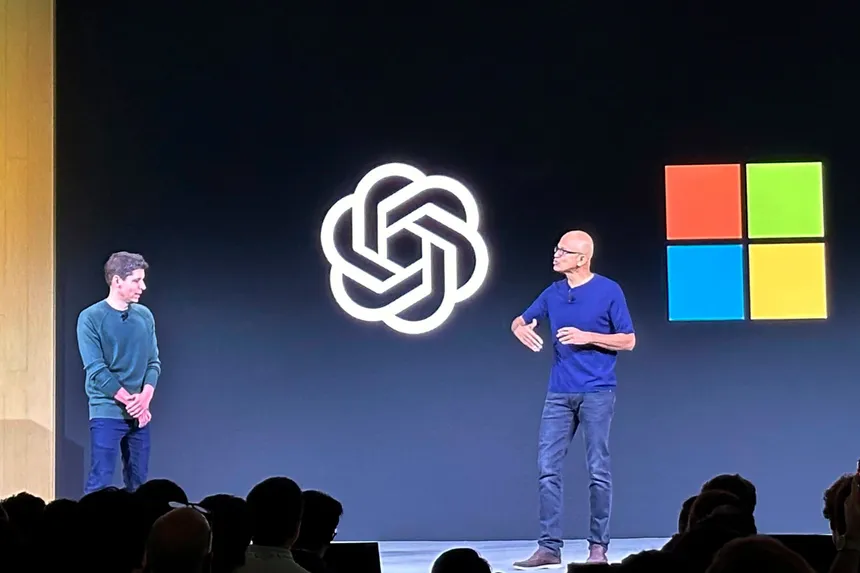The European Union is intensifying its scrutiny of the artificial intelligence industry, taking a fresh look at Microsoft’s multibillion-dollar partnership with OpenAI, a top EU official said on Friday. The European Commission, the bloc’s executive arm, had initially reviewed the deal last year but dropped it after concluding that Microsoft had not gained control of OpenAI. However, the commission is now using its antitrust rules to examine the deal and the industry more broadly.
The EU is concerned about the potential for Microsoft to exert control over OpenAI through exclusivity clauses, which could negatively impact competitors. The commission also wants to understand whether certain clauses in the agreement could have a negative effect on competitors. Microsoft has invested $13 billion in OpenAI over the years, making it one of the company’s most significant partnerships. Despite this, the EU is taking a close look at the deal to ensure that it does not break EU merger rules.
The commission is also examining other deals and practices in the AI industry, including Google’s arrangement with Samsung to pre-install Gemini Nano on some devices. Gemini Nano is the smallest version of Google’s Gemini AI foundation model, and the EU is concerned about whether this partnership gives Google an unfair advantage in the market. The commission is also investigating so-called “acqui-hires,” where a company buys another one mainly for its talent.
The EU’s intensified scrutiny of the AI industry is a response to concerns about the potential negative impact of big tech companies on competition and consumer choice. The EU has been a leader in the global push to rein in big tech companies, and its AI Act is set to take effect soon and is the world’s first comprehensive set of regulations for AI.
The commission’s review of Microsoft’s partnership with OpenAI is just one example of its efforts to ensure that the AI industry operates fairly and in the best interests of consumers. The EU is taking a close look at the partnership to ensure that it does not give Microsoft an unfair advantage in the market and that it does not negatively impact competitors. The commission is also investigating other deals and practices in the AI industry to ensure that they are fair and do not negatively impact competition or consumer choice.

Microsoft and OpenAI
The EU’s scrutiny of the AI industry is a significant development for the industry, and it highlights the importance of ensuring that big tech companies operate fairly and in the best interests of consumers. The industry is evolving rapidly, and it is essential that regulators take a close look at the deals and practices of big tech companies to ensure that they do not negatively impact competition or consumer choice.
EU regulators have sent information requests to big AI players, including Microsoft, Google, Facebook, and TikTok, to better understand their practices and policies. The commission is also conducting a review of Microsoft’s partnership with OpenAI to ensure that it does not give the company an unfair advantage in the market. The EU is concerned about the potential negative impact of big tech companies on competition and consumer choice, and it is taking a close look at the AI industry to ensure that it operates fairly and in the best interests of consumers.
The commission’s review of Microsoft’s partnership with OpenAI is a significant development for the industry, and it highlights the importance of ensuring that big tech companies operate fairly and in the best interests of consumers. The EU’s scrutiny of the AI industry is a response to concerns about the potential negative impact of big tech companies on competition and consumer choice, and it is essential that regulators take a close look at the deals and practices of big tech companies to ensure that they do not negatively impact competition or consumer choice.
EU regulators are also concerned about consumer choices for foundation models, which is the technology that underpins generative AI systems like chatbots. The commission is sending information requests to better understand the effects of Google’s arrangement with Samsung to pre-install Gemini Nano on some devices from the South Korean tech company. Gemini Nano is the smallest version of Google’s Gemini AI foundation model.
The commission is also examining so-called “acqui-hires,” where a company buys another one mainly for its talent. Microsoft’s hiring of Inflection AI’s founder Mustafa Suleyman, and other top staff, is just one example of this practice. The EU is concerned that these practices could lead to a concentration of power in the market, which could negatively impact competition and consumer choice.
The commission’s scrutiny of the AI industry is a significant development for the industry, and it highlights the importance of ensuring that big tech companies operate fairly and in the best interests of consumers. The EU’s review of Microsoft’s partnership with OpenAI is one example of its efforts to ensure that the AI industry operates fairly and in the best interests of consumers. The commission is taking a close look at the partnership to ensure that it does not give Microsoft an unfair advantage in the market and that it does not negatively impact competitors.
